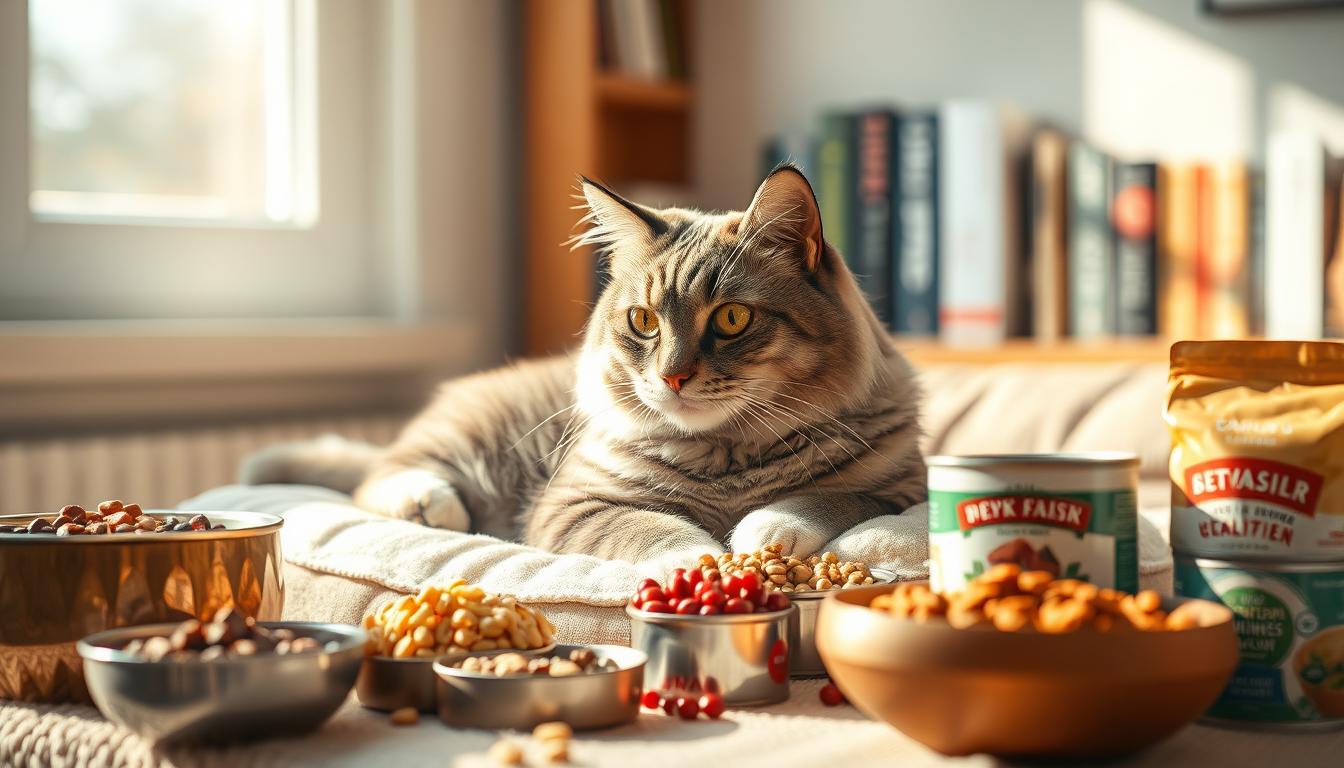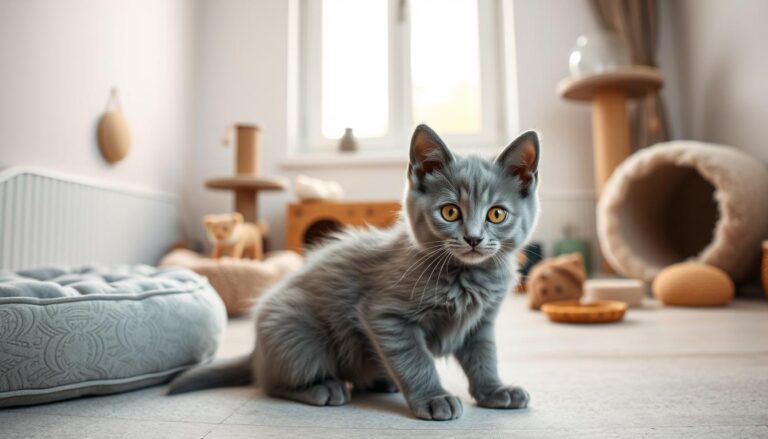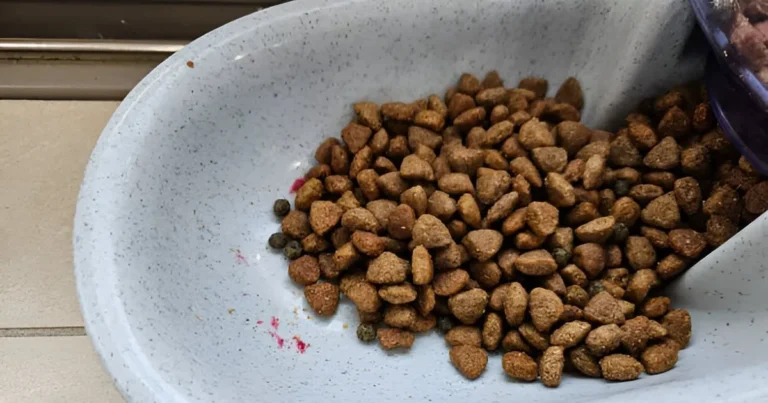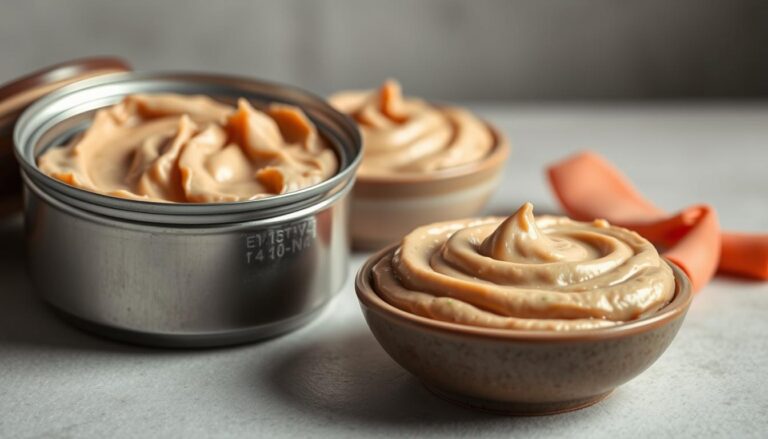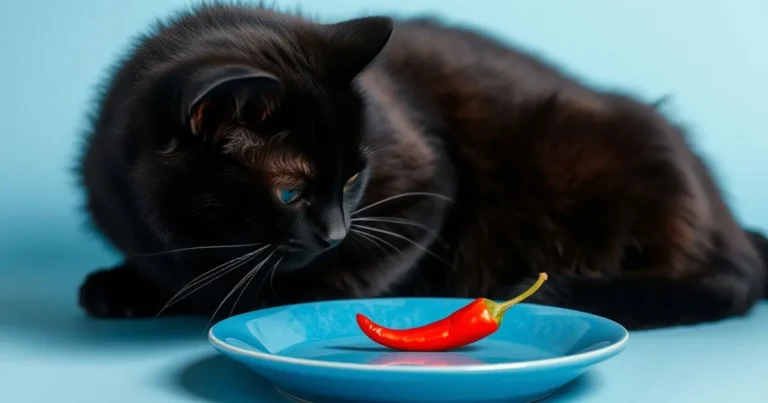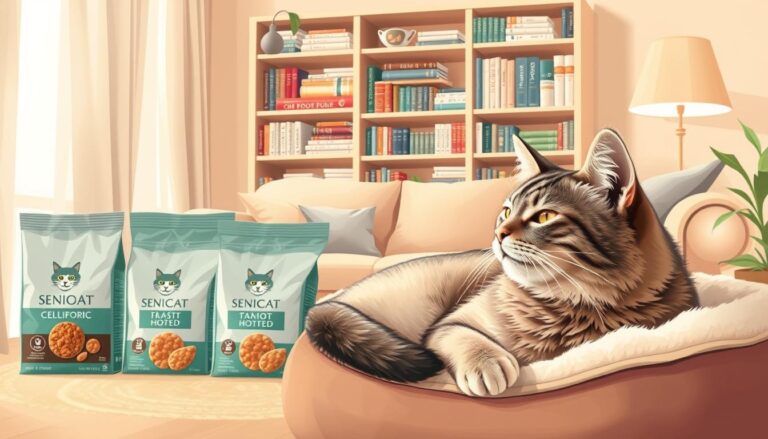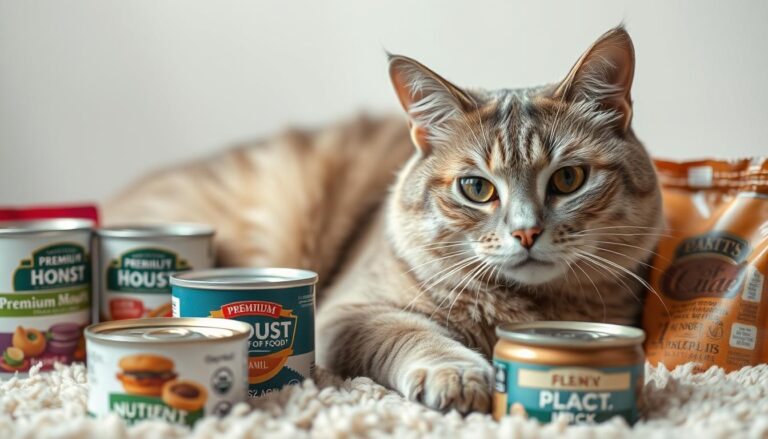Top-Rated Senior Cat Food Options to Keep Your Feline Healthy
When my beloved cat Whiskers entered her golden years, I realized senior cat nutrition is more than just feeding. It’s about caring for their health. Aging cats need special diets that meet their changing health needs.
The best food for senior cats goes beyond basic nutrition. It addresses challenges like reduced metabolism, dental issues, and weaker immune systems.
Your senior feline friend deserves nutritional support that keeps them vital and comfortable. As cats age, their diet needs change a lot. Senior cat nutrition is key to keeping their quality of life good, managing weight, supporting joints, and boosting wellness.
Choosing the right senior cat food can greatly impact your pet’s life and happiness. We’ll look at top-rated options that offer balanced, targeted nutrition for your aging friend.
Table of Contents
Understanding Your Senior Cat’s Nutritional Needs
Caring for a senior cat means paying close attention to their diet. As cats get older, their diet becomes key to keeping them healthy and happy. They need a special diet because their metabolism and activity levels change.
Senior cats go through big changes that affect their health. Their bodies don’t process nutrients as well, so they need a diet that supports them.
Key Nutrients for Aging Cats
Senior cats need certain nutrients to stay healthy. Here are the most important ones:
- Easily digestible proteins for muscle maintenance
- Omega-3 fatty acids for joint health
- Reduced calorie content to prevent weight gain
- Enhanced vitamin and mineral supplements
Age-Related Dietary Changes
Switching to a senior diet means understanding your cat’s needs. Vets suggest making changes slowly to help manage their diet.
| Age Range | Nutritional Focus | Recommended Diet Modifications |
|---|---|---|
| 7-10 years | Weight management | Reduced calorie intake |
| 11-14 years | Digestive support | Increased fiber, probiotics |
| 15+ years | Comprehensive health support | Specialized senior formulas |
Signs of Nutritional Deficiencies
Look out for these signs that your senior cat might need a better diet:
- Unexplained weight loss
- Decreased muscle mass
- Dull coat
- Reduced energy levels
“Nutrition is the cornerstone of preventive healthcare for senior cats.” – Veterinary Nutrition Expert
Talking to your vet is the best way to make a diet plan for your senior cat. They can help create a plan that meets your cat’s specific needs.
Best Food for Senior Cats: A Comprehensive Guide
Choosing the right food for elderly cats is important. Their nutritional needs change as they age. Quality cat food for seniors is key to keeping them healthy.
When picking senior cat food, look for these important features:
- Balanced protein to help keep muscles strong
- Lower calories to prevent weight gain
- Easy to digest for older digestive systems
- Nutrients that help with senior cat health issues
Nutritional needs change a lot as cats get older. Vets suggest special foods for age-related problems like slower metabolism and muscle loss. They also help with kidney and joint issues.
Choose brands that offer:
- High-quality protein sources
- Omega-3 fatty acids for joint health
- Less phosphorus for kidney support
- More antioxidants for a strong immune system
Talking to your vet can help find the best food for your aging cat.
Recommended brands for senior cats include Royal Canin Senior, Hill’s Science Diet Adult 7+, and Purina Pro Plan Senior. These brands have special formulas for older cats’ needs.
Wet vs. Dry Food Options for Elderly Cats
Choosing the right food for your senior cat is important. As cats get older, their diet needs change. This makes picking between wet and dry food key for their health and happiness.
Understanding what older cats need is key. The right food helps keep them healthy and manage age-related issues.
Benefits of Wet Food for Senior Cats
Wet food has many benefits for older cats:
- It has more moisture to help with hydration
- It’s easier for cats with dental problems to chew
- It tastes better for cats who don’t want to eat much
- It can help with weight management
When to Choose Dry Food
Dry food also has its perks for senior cats. Choose dry food when:
- Your cat needs help with dental health
- You want a convenient feeding option
- Your cat has good teeth
Mixing Feeding Strategies
Vets often suggest a mix of wet and dry food for senior cats. Here’s a look at both options:
| Food Type | Pros | Recommended Quantity |
|---|---|---|
| Wet Food | Hydration, Easy to Eat | 70-80% of Daily Diet |
| Dry Food | Dental Health, Convenience | 20-30% of Daily Diet |
Pro tip: Always talk to your vet to make a diet plan that fits your senior cat’s needs.
Premium Brands Specialized in Senior Cat Nutrition
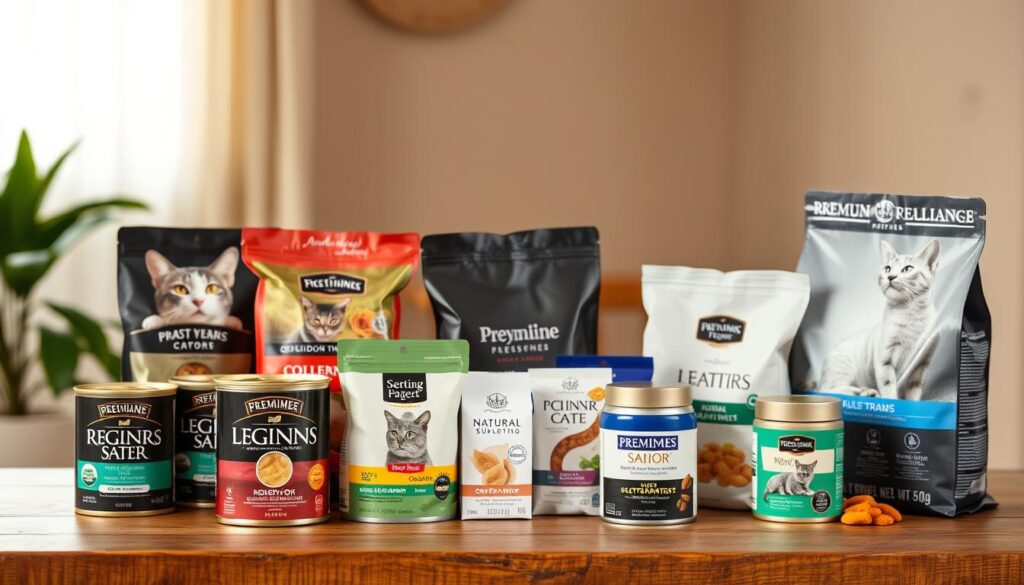
Choosing the right food for senior cats is important. As they age, they need special nutrition. Premium brands have created formulas to meet their health needs.
Some top brands make the best food for senior cats. They focus on the nutrition needs of older cats:
- Royal Canin Senior Nutrition
- Hill’s Science Diet Mature Adult
- Purina Pro Plan Senior
- Blue Buffalo Seniors Line
These brands offer special nutrition for aging cats. They consider important factors like:
- Reduced calorie density
- Enhanced digestibility
- Joint support supplements
- Kidney and urinary tract health
Let’s look at what makes these brands stand out in senior cat nutrition:
| Brand | Key Features | Health Focus |
|---|---|---|
| Royal Canin | Precise nutrient balance | Muscle maintenance |
| Hill’s Science Diet | Veterinarian recommended | Weight management |
| Purina Pro Plan | Probiotic support | Immune system |
| Blue Buffalo | Natural ingredients | Cognitive function |
Tip: Always consult your veterinarian before switching to a new senior cat food to ensure it meets your specific cat’s health requirements.
How to Transition Your Aging Cat to New Food
Changing your senior cat’s food needs careful planning and patience. Senior cat care means knowing older cats can be picky about food. A slow transition helps avoid stomach problems and makes sure your cat likes the new food.
When introducing new food to an aging cat, you need a smart plan. Your aim is to make the change easy and stress-free for your cat.
Step-by-Step Food Transition Guide
- Begin by mixing 25% new food with 75% current food
- Slowly increase the new food over 7-10 days
- Keep an eye out for any stomach upset signs
- Stick to a regular feeding schedule
Managing Food Sensitivities
Older cats often have more sensitive stomachs. Look out for signs of allergies like:
- Vomiting
- Diarrhea
- Less interest in food
- Skin problems
Monitoring Your Cat’s Response
Watch how your cat reacts to the new food closely. Keep an eye on their weight, energy, and health. If you see big changes or ongoing stomach issues, talk to your vet.
Every cat is different. Some might adjust fast, while others need more time and patience during the food change.
Common Health Issues and Dietary Solutions
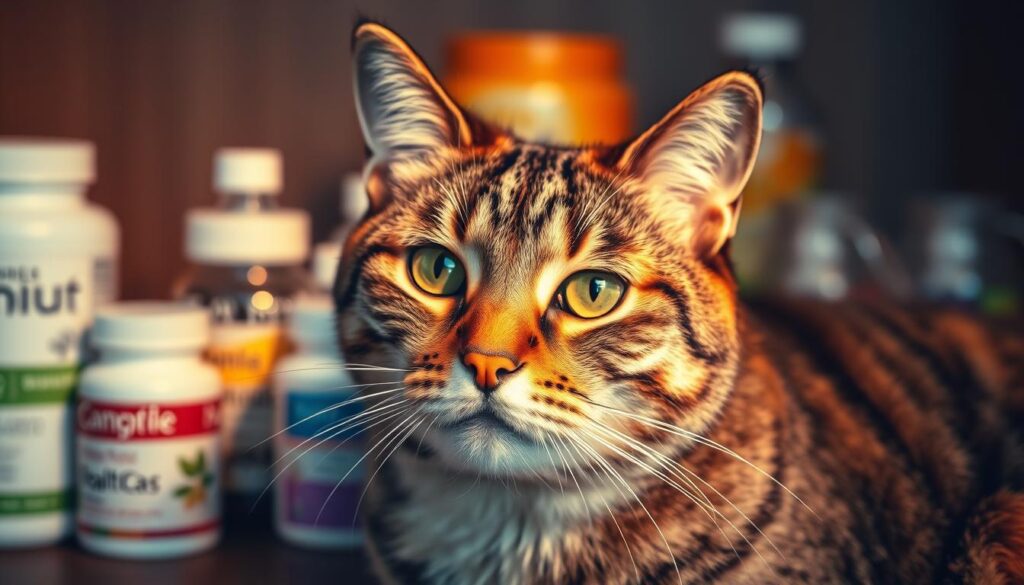
As your feline friend gets older, their health needs change. Senior cat health is key. Aging cats face many health issues that can be helped by a good diet.
Older cats often deal with several health problems. These need special nutrition:
- Obesity: Less activity can cause weight gain, stressing joints and organs
- Kidney Disease: Needs a diet low in protein but high in easy-to-digest nutrients
- Diabetes: Requires careful control of carbs and balanced nutrition
- Arthritis: Benefits from anti-inflammatory nutrients and omega-3 fatty acids
Your vet can create a diet plan for your cat’s health needs. Special senior cat foods often have:
- Lower-calorie options to prevent weight gain
- More moisture for kidney health
- Nutrient balances for immune support
- Supplements like glucosamine for joints
It’s important to watch your cat’s weight, energy, and health. Regular vet visits and blood tests can catch problems early. This lets you take action to keep your senior cat healthy.
Ingredients to Look for in Senior Cat Food
Choosing the right food for your aging cat is important. Senior cat nutrition helps keep them healthy and happy in their golden years.
When looking for the best food for elderly cats, knowing the key ingredients is crucial. These ingredients help meet their changing nutritional needs.
Essential Proteins and Fats
Protein is key for senior cats. They need high-quality, easy-to-digest proteins to keep their muscles strong. Look for foods with:
- Lean animal proteins like chicken or fish
- Reduced fat content to prevent weight gain
- Moderate protein levels that support muscle preservation
Beneficial Supplements
Top cat food for elderly cats often has special supplements. These supplements help with age-related health issues. Look for:
- Glucosamine for joint health
- Omega-3 fatty acids for cognitive function
- Antioxidants to support immune system
- Taurine for heart and eye health
Natural Preservatives
Choosing foods with natural preservatives is a good idea. Vitamin E and rosemary extract are great options. They keep food fresh without harmful chemicals.
Pro tip: Always consult with your veterinarian to determine the most appropriate nutritional approach for your senior cat’s specific health needs.
Conclusion
Choosing the right food for senior cats is key to their happiness and health. It’s not just about buying food; it’s about caring for your cat’s needs as they age. Their diet must be tailored to keep them healthy and full of life.
Every senior cat is different, needing their own special diet. Talking to your vet can help find the best food for your cat. They can guide you based on your cat’s health, like weight, kidney, or joint issues.
Learning about your senior cat’s diet is important for their well-being. High-quality, age-specific foods support their health and help them stay active. This care ensures they live comfortably and happily in their golden years.
Watch how your cat reacts to new foods and be ready to adjust. Always put their needs first. With the right nutrition, you can help your senior cat stay healthy and happy.

